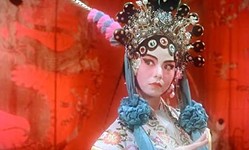Wisecracks
1992, NR, 90 min. Directed by Gail Singer. Starring Joy Behar, Ellen Degeneres, Phyllis Diller, Whoopi Goldberg, Paula Poundstone.
REVIEWED By Pamela Bruce, Fri., Oct. 2, 1992
Known for her sociopolitical documentaries Loved, Honoured Bruised and Abortion Stories North and South, Canadian filmmaker Gail Singer takes a lighter turn to concentrate on the current proliferation of female stand-up comics in Wisecracks. Intercut with performances and interviews of notable American and Canadian comediennes, and without turning her film into a hardcore feminist bitchfest, Singer captures the rarely-seen insight behind the humor of these women -- material that the likes of Comedy Central and the late-night talk shows usually ignore. The women speak of their feelings as performers: the nature of overcoming insecurity in order to take command of the stage and connect with an audience, the differences between male and female comics with respect to material and delivery, and what it means to succeed as individuals -- to command respect and adoration in the predominantly male, oftentimes sexist, arena of comedy. Singer also frames these performances and interviews with archival footage of such trailblazing comediennes as Gracie Allen, Fanny Brice, Mae West, Carol Burnett and Lucille Ball, among others, as a historical reference point to reflect the evolution of women in comedy: from the objectified, passive pie-in-the-face, soaked-with-a-seltzer-bottle-status of decades past to the bolder, more outspoken, less self-deprecatory stance of the present. Yet, it is in the historical perspective that Singer's film hits a weak point, for she fails to recognize (perhaps out of ignorance or the inaccessibility of archival material) the historical significance of such comediennes as Thelma Todd and ZaSu Pitts (who were probably the first successful female comedy team) from the Hal Roach farces of the 1930s, Imogene Coca, Joan Rivers and Totie Fields (both of whom, along with Phyllis Diller, established themselves as stand-up comics on The Ed Sullivan Show during the 1960s) as well as Lily Tomlin's hilarious gender-bending routines from the 1970s. The real strength of the film lies in the scathingly funny performances which make it hum and zing, and no taboo topic is left untouched: abortion, married men, Cosmo Girls, sanitary napkins, messy public restrooms, and premature ejaculation, to name a few. Beneath the hilarity of these funny women, though, is the hope and desire that their burgeoning numbers will create a growing force of acceptance by both their male counterparts and audiences alike. And who knows, as time goes by, these women may wind up with the last laugh after all.
A note to readers: Bold and uncensored, The Austin Chronicle has been Austin’s independent news source for over 40 years, expressing the community’s political and environmental concerns and supporting its active cultural scene. Now more than ever, we need your support to continue supplying Austin with independent, free press. If real news is important to you, please consider making a donation of $5, $10 or whatever you can afford, to help keep our journalism on stands.
Dec. 17, 1993
April 23, 1993
Wisecracks, Gail Singer, Joy Behar, Ellen Degeneres, Phyllis Diller, Whoopi Goldberg, Paula Poundstone







